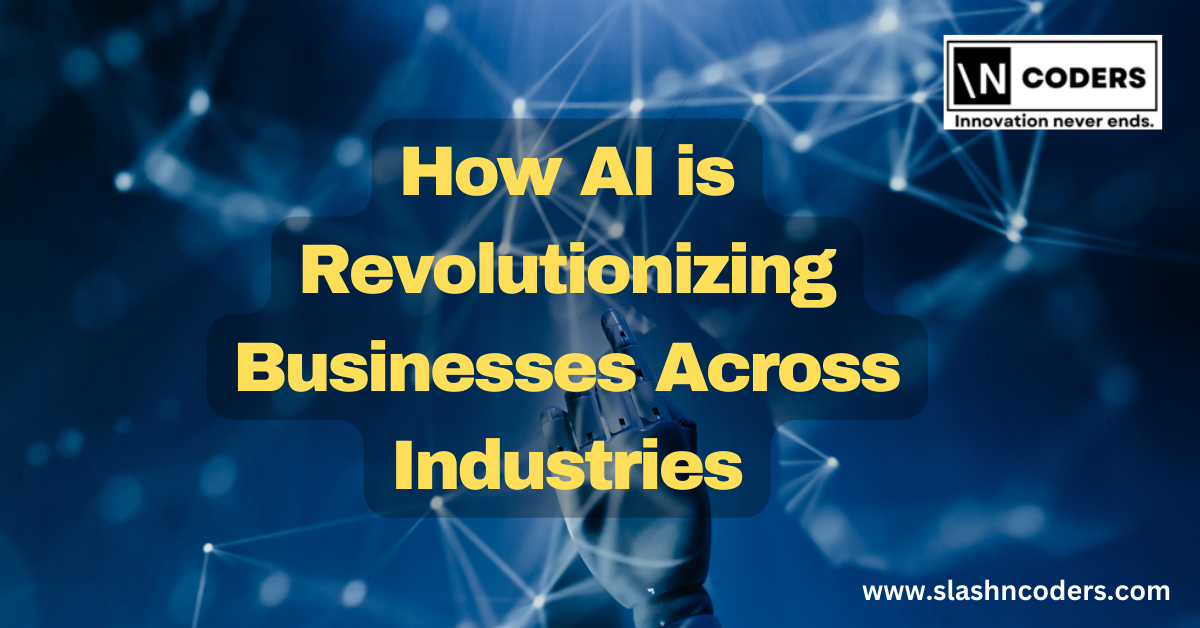Artificial Intelligence (AI) has transformed the world in ways that were once unimaginable. From virtual assistants like Siri and Alexa to self-driving cars, AI is changing the way we live and work. With the advancement in technology, AI has become a critical component in the business world as well. It is helping companies to automate processes, personalize customer experiences, and make informed decisions. In this article, we will discuss how AI is revolutionizing businesses across industries.
- How AI is Enhancing Customer Experience a. Personalization b. Chatbots c. Predictive Analytics
- AI in Finance a. Fraud Detection b. Trading c. Risk Assessment
- AI in Healthcare a. Diagnostics b. Treatment Plans c. Drug Development
- AI in Education a. Personalized Learning b. Automated Grading c. Student Retention
- Challenges of Implementing AI a. Ethical Concerns b. Technical Difficulties c. Security Risks
- Frequently Asked Questions
- Conclusion
How AI is Enhancing Customer Experience
Personalization
AI is helping companies to offer personalized experiences to their customers. By analyzing the customer’s behavior, preferences, and purchasing history, AI algorithms can predict what the customer may want or need. For instance, e-commerce giant Amazon uses AI to provide personalized recommendations to its customers based on their browsing and purchase history.
Chatbots
Chatbots are computer programs that use natural language processing to simulate human conversation. They can answer customer queries and offer suggestions. Chatbots have become increasingly popular in recent years, as they can provide round-the-clock customer service without any human intervention.
Predictive Analytics
Predictive analytics is the use of statistical algorithms and machine learning techniques to analyze historical data and make predictions about future events. Companies can use predictive analytics to identify potential customers, target them with relevant ads, and even anticipate their future behavior.
AI in Finance
Fraud Detection
AI is helping financial institutions to detect fraudulent activities in real time. By analyzing large volumes of data, AI algorithms can identify unusual patterns and alert authorities. This has become a critical component in the fight against financial crimes.
Trading
AI is also being used to analyze market data and make trading decisions. AI algorithms can detect patterns and trends that humans may miss, and execute trades at lightning speed.
Risk Assessment
AI is helping companies to assess the risk associated with their investments. By analyzing various data points such as market trends, company financials, and macroeconomic indicators, AI algorithms can predict the likelihood of success or failure.
AI in Healthcare
Diagnostics
AI is helping healthcare professionals to diagnose diseases more accurately and efficiently. By analyzing medical images, AI algorithms can detect subtle changes that may not be visible to the human eye. This has the potential to save lives and reduce healthcare costs.
Treatment Plans
AI is also being used to develop personalized treatment plans for patients. By analyzing various data points such as genetics, medical history, and lifestyle, AI algorithms can suggest the best treatment options for each patient.
Drug Development
AI is helping pharmaceutical companies to develop new drugs faster and more efficiently. By analyzing vast amounts of data, AI algorithms can identify potential drug candidates and predict their efficacy.
AI in Education
Personalized Learning
AI is helping to personalize the learning experience for students. By analyzing a student’s learning style, strengths, and weaknesses, AI algorithms can suggest the best learning materials and activities for that student. This approach can help students to learn more efficiently and effectively.
Automated Grading
AI is also being used to automate the grading process, saving time for educators and providing more consistent feedback to students. By analyzing essays, exams, and other assignments, AI algorithms can provide feedback on areas of strength and weakness, as well as overall performance.
Student Retention
AI is helping colleges and universities to improve student retention rates. By analyzing various data points such as attendance, grades, and engagement, AI algorithms can predict which students are at risk of dropping out and suggest interventions to help them stay on track.
Challenges of Implementing AI
While AI offers significant benefits to businesses, there are also some challenges in implementing the technology. Some of the main challenges include:
Ethical Concerns
As AI becomes more advanced, there are concerns about how the technology will be used. Some people worry that AI will be used to automate jobs, leading to widespread unemployment. There are also concerns about data privacy and security, as AI algorithms often require access to sensitive information.
Technical Difficulties
Implementing AI can be challenging from a technical standpoint. Companies may need to invest in new hardware and software, as well as hire specialized personnel to develop and maintain the AI algorithms.
Security Risks
AI systems can also be vulnerable to cyber-attacks. Hackers may try to access sensitive data or manipulate AI algorithms to achieve their own ends. This can lead to financial losses, reputation damage, and other negative consequences.
Frequently Asked Questions
- What is AI?
AI stands for Artificial Intelligence. It is a branch of computer science that focuses on creating machines that can perform tasks that typically require human intelligence, such as learning, problem-solving, and decision-making.
- What are some examples of AI in business?
AI is being used in various industries, including finance, healthcare, education, and retail. Examples include personalized recommendations, fraud detection, medical diagnostics, and automated grading.
- What are the benefits of AI in business?
AI can help businesses to automate processes, personalize customer experiences, and make more informed decisions. It can also help to reduce costs and increase efficiency.
Also, Read Best AI Writing Tools
Conclusion
AI is rapidly transforming the way businesses operate, from enhancing customer experiences to streamlining processes and making better decisions. While there are challenges in implementing AI, the benefits are clear. As technology continues to advance, it is likely to become an increasingly critical component of business strategy. By embracing AI, companies can stay ahead of the curve and remain competitive in today’s fast-paced business world.


